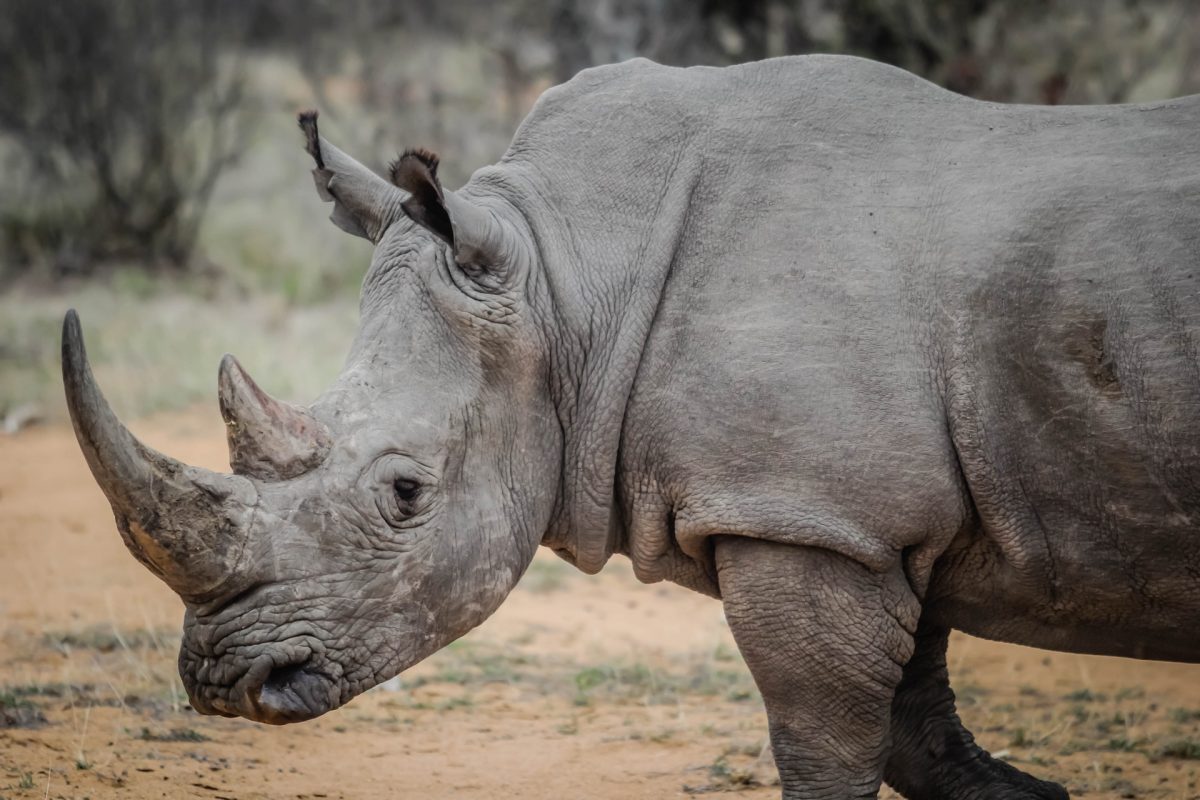
The winning applications of the 2019 Travel Awards from the College of Veterinary Medicine’s global health program have been announced.
The awards support CVM faculty as they advance their research in different fields of global health, including wildlife conservation and infectious disease. By supporting their travel to different countries, the global health program is helping faculty advance their partnerships with global collaborators, train veterinary students in international settings, and broaden the impact of global health research at CVM.
2019 Global Health Travel Award Winners: |
Read more about each award-winning project below:
Anatomy of the Southern White Rhinoceros
INVESTIGATORS

|

|
|
COLLABORATORS Johan Marais, adjunct senior lecturer at the University of Pretoria, and founder of Saving the Survivors. |
LOCATION
Northern Pretoria | South Africa
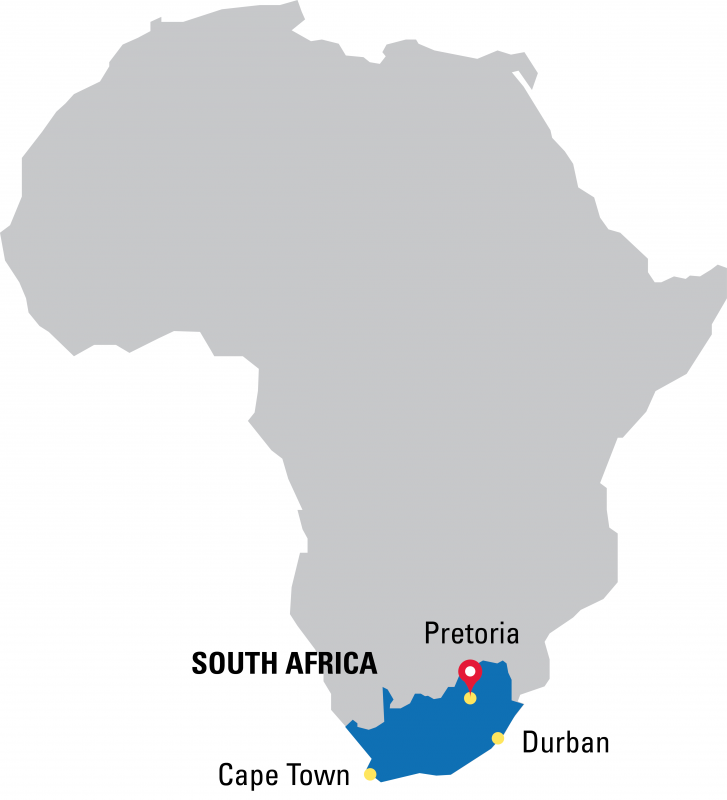
THE RESEARCH
South Africa is home to the largest population of Southern White Rhinos in the world. Although they are the only species of rhino that are not endangered, fewer than 20,000 animals still survive. Driven by persistent demand, poaching for the illegal trade of rhino horn continues today, with more than 1,000 animals slaughtered each year. Some animals survive poaching, but in addition to massive facial injuries, they suffer devastating gunshot and leg snare wounds that require emergency medical attention.
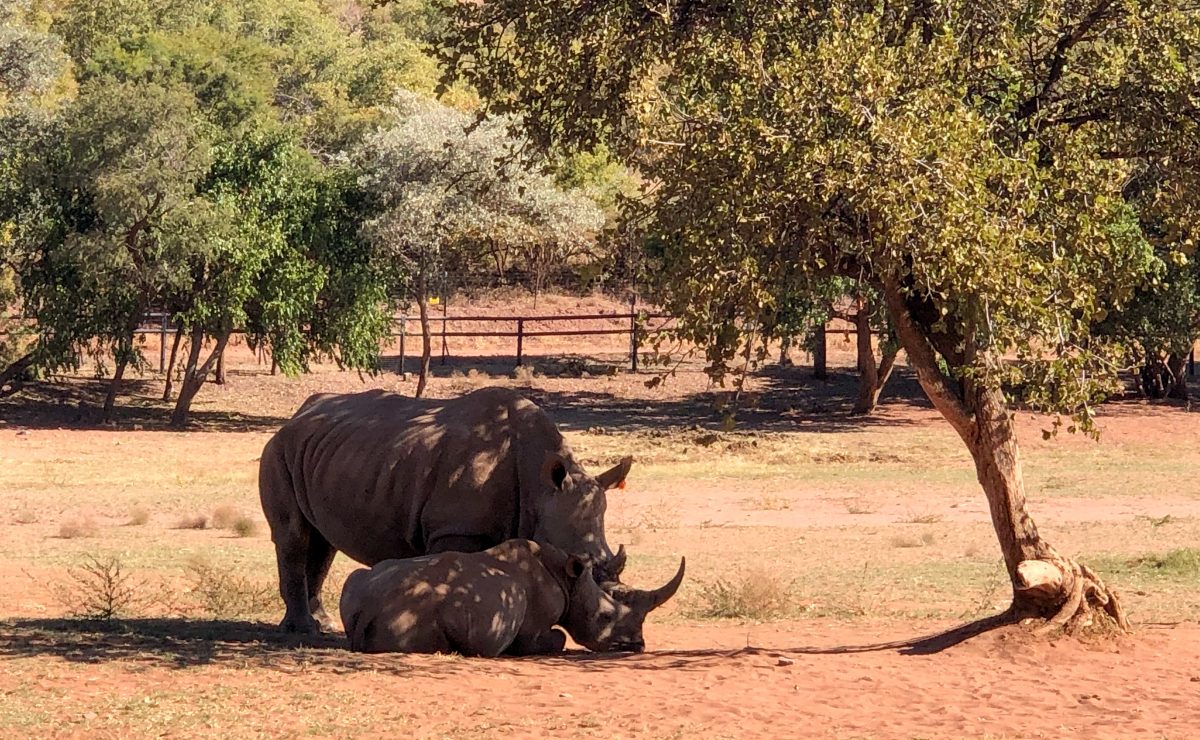
Poached rhinos suffer massive injuries to their faces and bodies, and without an understanding of their anatomy, veterinarians struggle to save the animals.
Photo courtesy of Anthony Blikslager.
To increase the survival of injured Southern White Rhinos, CVM professors Anthony Blikslager and Mathew Gerard are working with their long-time collaborator Johan Marais to study the anatomy of the rhinos, including their legs, face and upper airways. Although much of their anatomy is unknown, rhinos bear some similarities to horses, their distant evolutionary cousin. As experienced equine surgeons and anatomists, Blikslager and Gerard are using their knowledge of horse anatomy to learn more about rhinos, and how to perform lifesaving treatments in the field.
This project builds on Blikslager and Gerard’s previous work with Marais, which led to their first joint research paper on rhino sinus anatomy last year. This year, to continue their work, they are returning to South Africa with three veterinary students, Dina Ibrahim, Kelsie Dougherty and Haley Dodson. The experience will not only train the students in fieldwork and clinical anatomy, but also give them crucial insight into the challenges of working in a country with different resources and cultures – skills critical for veterinarians working in global health and wildlife conservation.
Tourist-induced stress in seabirds
INVESTIGATOR

|
COLLABORATORS Carlos Valle, professor of ecology and evolutionary biology at the University of San Francisco in Quito, Ecuador. |
LOCATION
Genovesa Island, Galápagos | Ecuador
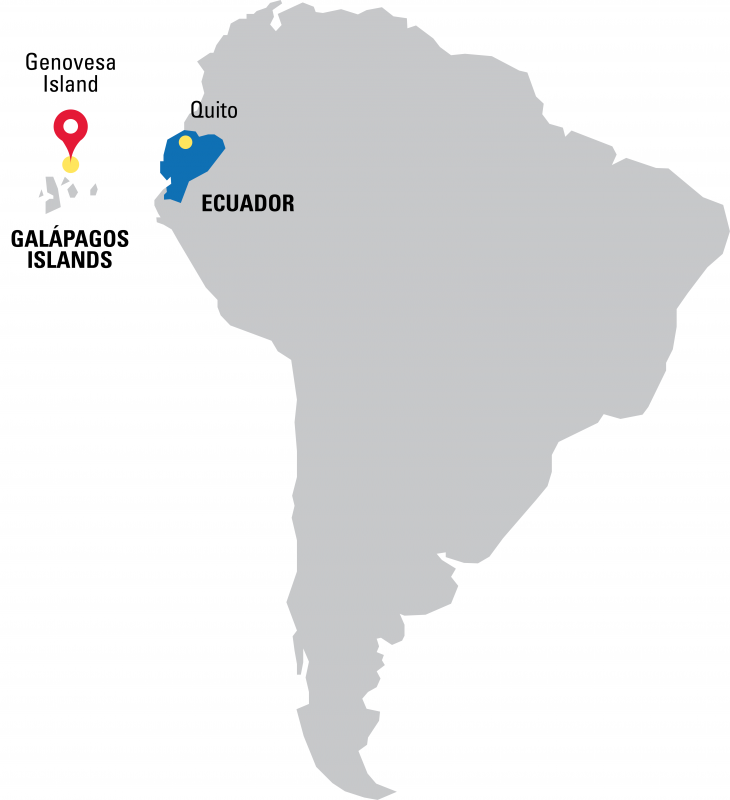
THE RESEARCH
Today, wildlife tourism generates billions of dollars of revenue worldwide. Although this economic incentive helps preserve habitats and support conservation efforts, careful monitoring of wildlife health is essential for ensuring the tourism industry does not compromise the health of the animals and ecosystems it relies on.
Since 2013, CVM professor Gregory Lewbart has led a number of studies investigating wildlife health across the Galápagos Islands, an archipelago of Ecuador in South America. This year, he is returning to the island of Genovesa to study red-footed boobies, seabirds that live year-round in tropical and subtropical regions of the Atlantic, Pacific and Indian Oceans. The birds have long lifespans of 20 years or more, but with more than 200,000 tourists visiting the Galápagos Islands each year, conservationists are wary of the risks posed to animal health, stress, behavior and reproduction.
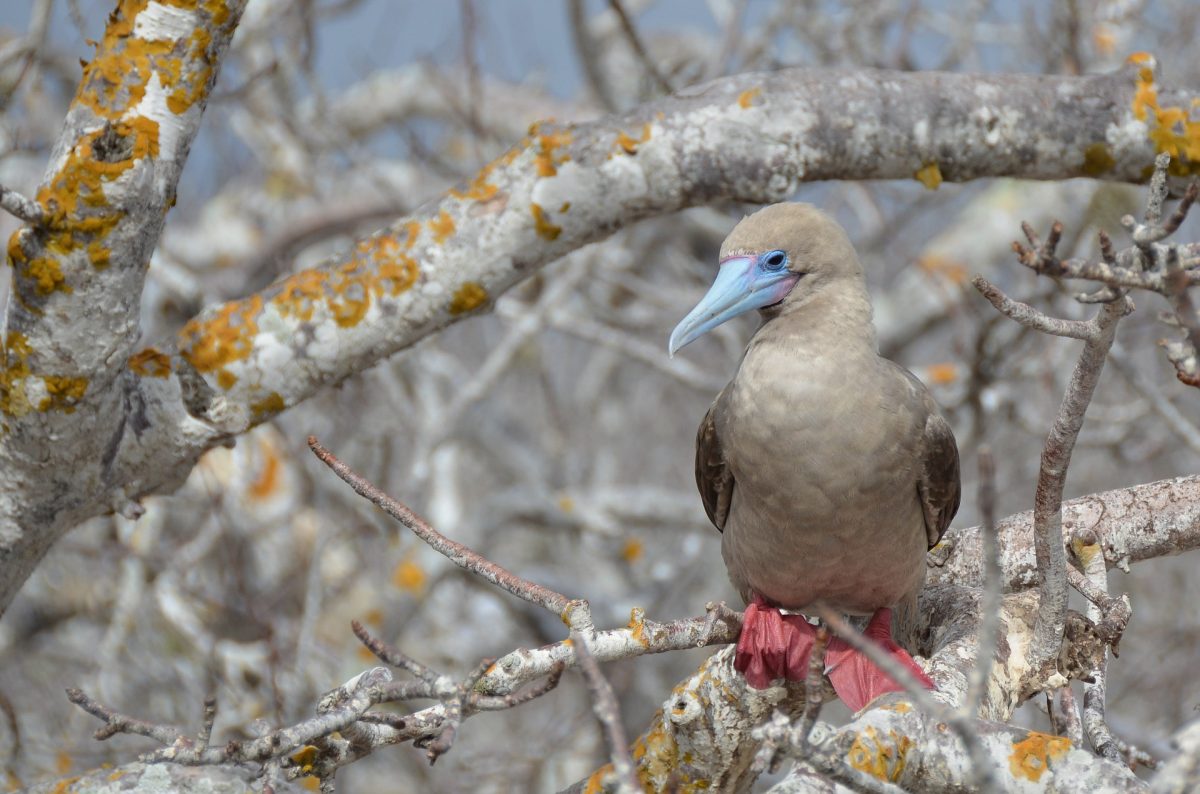
Monitoring the stress and health of birds like the red-footed booby will help protect their populations and the tourist-driven economy of their island home.
To examine whether tourism is increasing the stress of red-footed boobies, Lewbart and his long-term collaborator Carlos Valle are comparing blood levels of stress hormones in birds nesting close to popular tourist areas with those nesting in quieter parts of the island. Their findings could guide conservation efforts to maintain the bird population, while helping sustain the island’s tourist-driven economy.
This research project complements Lewbart’s longstanding role in global health education. Each year, he leads a group of veterinary students to the islands for the CVM Galápagos elective, where they conduct wildlife case studies. The elective also teaches veterinary students how to work in a foreign country with different environments, cultures and sparse resources – skills that will enable students to impact global health through their future roles as world-class veterinarians.
The Bacterial Microbiome of Mosquitoes
INVESTIGATOR
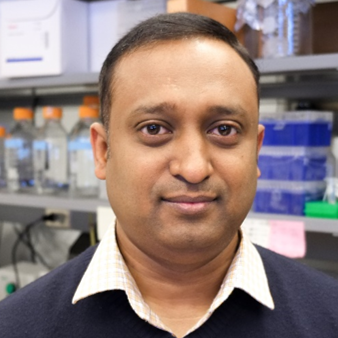
|
COLLABORATORS Mawlouth Diallo, Alioune Gaye and Yakhya Dieye, researchers in the Medical Entomology and Virology Units at the Institut Pasteur de Dakar. |
LOCATION
Dakar | Senegal
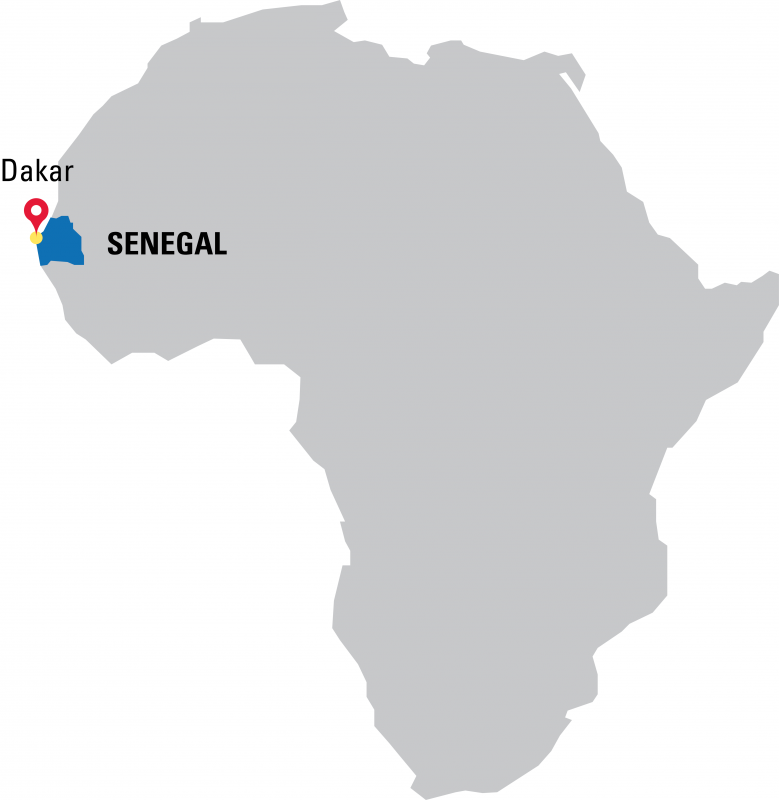
THE RESEARCH
Some of today’s most devastating infectious diseases are transmitted by mosquitoes. The insects are found in almost all countries worldwide, and by carrying and spreading diseases such as malaria, dengue and yellow fever, they cause millions of human deaths each year. The global dominance of mosquitoes is driven by their ability to adapt to different environments, and by understanding this further, we can develop strategies to stop the spread of mosquitoes and the infectious diseases they carry.
In recent years, researchers have started to question the role of microbiota – complex communities of bacteria and other microorganisms that live in the guts of all animals, including insects. To explore this further, CVM research assistant professor Shivaramu Keelara Veerappa is joining his collaborators in Senegal this summer to study the microbiota of Aedes aegypti, the main species of mosquito responsible for carrying viruses between people. Although A. aegypti originates from Africa, it is now found globally in tropical and subtropical regions. With the continued rise in global warming, their habitats will only continue to expand.
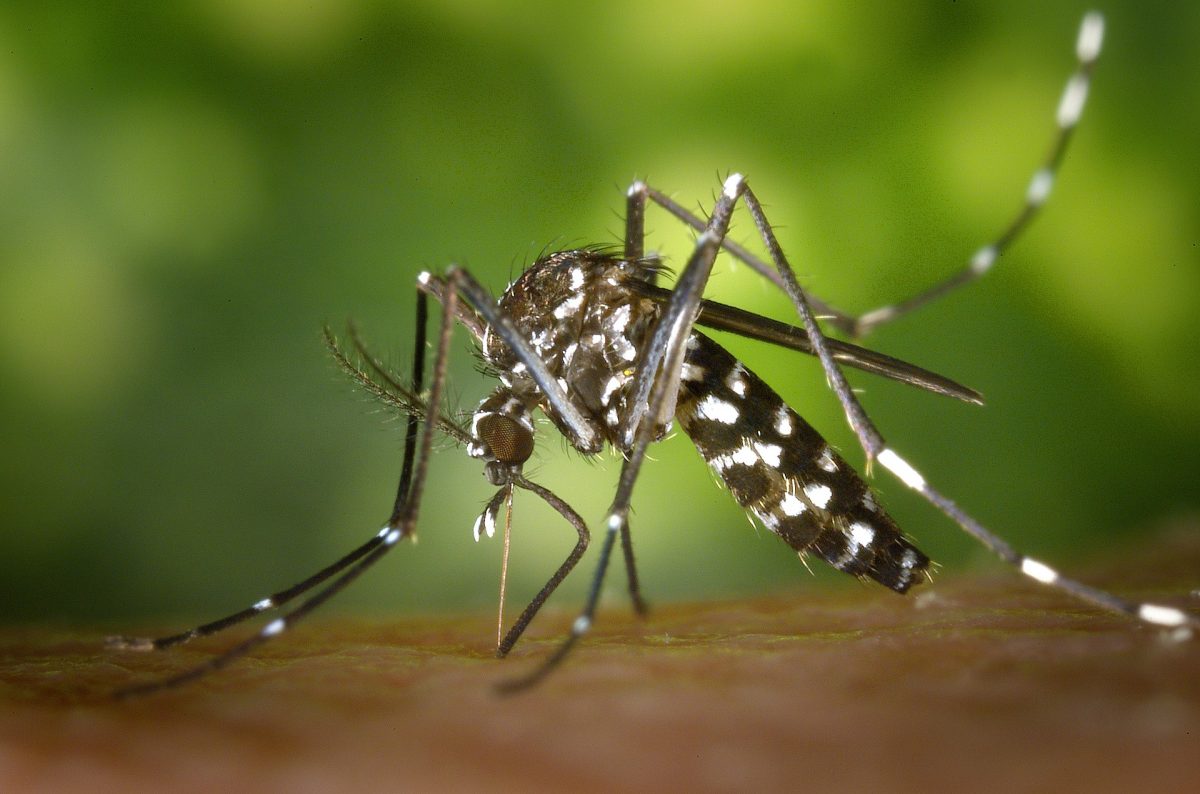
Thanks to the viruses they carry, mosquitoes like Aedes aegypti are some of the deadliest animals in the world, but studying the bacteria that help mosquitoes survive could be key to stopping their spread.
Earlier studies have already showed that bacteria benefit insects in a number of ways, from increasing their insecticide resistance to enhancing the nutrition they extract from animal and human blood. During the project, Keelara and his collaborators will capture mosquitoes from natural breeding sites in Senegal, and identify which bacteria they contain. Once they know which bacteria to study, they can investigate how the bacteria help mosquitoes thrive, and develop new ways to curtail the survival and spread of the insects.
This project is part of a new global partnership between CVM and the Institut Pasteur de Dakar, a major biomedical research center in Senegal that tackles public health challenges in West Africa. Through joint research and training efforts, the two institutions are committed to uniting their world-leading expertise in infectious diseases to improve health for all worldwide.
– Greer Arthur, Global Health Program Specialist
